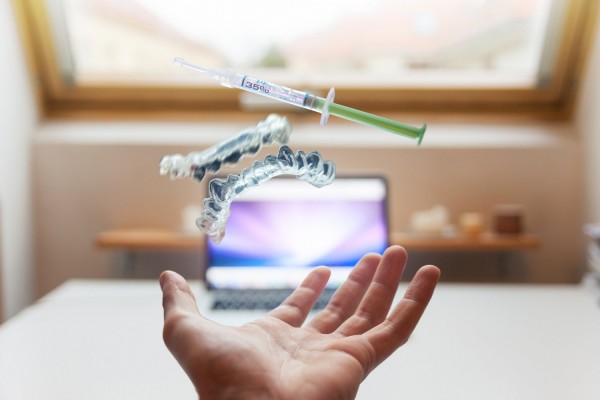Sedation dentistry can be an excellent solution for individuals experiencing dental anxiety or fear. Visiting will become much less daunting and more enjoyable by creating a relaxing and comforting atmosphere at the dentist's office.
Sleep dentistry North York is a type of sedation dentistry that involves using medication to induce a state of deep relaxation or sleep during dental procedures. This can be a good option for patients with severe dental anxiety or needing to undergo complex dental procedures.
Before opting for sedation dentistry, patients must inform the dentist of all medications or supplements they are currently taking to avoid potential interactions between sedatives and any possible drug interactions. Furthermore, they should arrange a ride home as post-procedure symptoms can leave patients drowsy and weak.
1. How Does It Work?
Sedation dentistry uses drugs to make patients drowsy or relaxed during dental procedures. Sedation levels range from minimal sedation, in which the patient remains awake but less aware of pain, to moderate levels that allow the individual to remain conscious but less responsive to commands from the dentist; deep sedation provides even further relaxation but keeps one from responding fully to those commands.
Before your sedation dentistry procedure begins, your dentist will gather a medical history and perform a physical exam. It is important to provide all relevant health details to prevent complications, particularly if you take medications for heart conditions, high blood pressure, diabetes, or respiratory conditions.
Bring someone with you who can drive you home after receiving sedation dentistry, as its effects can take several hours to wear off. Do not drive or operate machinery after receiving this form of dentistry, as it could be dangerous. Your dentist will monitor your vital signs during and after receiving sedation dentistry and have oxygen and drugs ready in case an emergency occurs.
2. What Are the Risks?
Sedation dentistry can be an extremely safe option. Your dentist will monitor your vital signs according to American Dental Association guidelines during the procedure and have oxygen and medication available if needed to reverse its effects if necessary. Furthermore, any drowsiness that follows should subside within hours—but to be safe, you should arrange for someone else to drive home afterward so you don't fall asleep behind the wheel!
Sedation dentistry also benefits patients with special needs who may not be able to communicate their anxiety over visiting the dentist or any oral issues until they become serious. Sedation can help these individuals avoid degrading their teeth and gums over time, leading to costly health issues in later years.
Sedation dentistry also helps shorten patient chair time, which allows dentists to complete more work more quickly while saving patients the hassle of multiple appointments.
3. Is it Covered by Insurance?
Most dental insurance plans do not cover sedation dentistry services as most insurers consider them luxurious services; coverage usually only extends to medically necessary services.
However, if you have a severe disability or condition that prevents you from receiving the necessary care without resorting to sedation, your insurance company may make an exception for you. Such cases typically include cerebral palsy, autism spectrum disorder, and mental retardation, as well as complex treatments like major oral surgery.
Nitrous oxide (laughing gas) can help alleviate mild anxiety, making your appointment feel like more of a spa experience. Administered through a small mask placed over your nose, laughing gas will calm and relax you while helping ease fear, disappearing upon appointment completion and instantly leaving your system.
If your dental insurance does not cover sedation dentistry, speak to your dentist about alternative financing options. Many work with third-party financing companies that provide low or no-interest options for patients.
4. What Are the Benefits?
Sedation dentistry offers many advantages. One benefit is allowing you to receive the dental care you need and want without experiencing pain or anxiety on a routine visit. At the same time, sedation can help you achieve the smile of your dreams more quickly than conventional procedures.
Sedation dentistry can also help those with special needs who struggle to stay still for extended periods in a dentist chair, such as those living with autism, cognitive impairments, or physical disabilities—many have developed fears from negative childhood experiences that make sitting still in one uncomfortable.
Sedation dentistry can help people overcome the fear of flying, public speaking, and death. Additionally, it may even provide relief from obstructive sleep apnea, which often makes sleeping difficult. When searching for a qualified dentist to perform your sedation dentistry procedure, it's essential that they have extensive training in performing it successfully before. When asking how much the procedure costs or if any risks exist, make sure your questions are answered thoroughly by them before moving forward with treatment.
5. What Are the Side Effects?
Depending on the type of sedation dentistry treatment chosen, its side effects will differ according to its form. Patients undergoing oral sedation typically take an oral pill like Halcion (which belongs to the same drug family as Valium) to induce sleepiness; larger doses may also be administered for moderate sedation that will leave patients awakened easily enough after their procedure has finished. Because children tend not to share their experiences openly during sedation procedures, make sure you keep an eye out in the hours and days following.
Nitrous oxide, commonly referred to as laughing gas, has the mildest sedation methods; however, its most prevalent effect is drowsiness. Children may find difficulty focusing on schoolwork or activities for up to 24 hours after receiving this form of sedation.
Before undertaking any form of sedation, it's vitally important to inform your dentist of your medical history. Include all details regarding existing health conditions and medications (including supplements and vitamins) taken to help them determine whether sedation will be safe.


